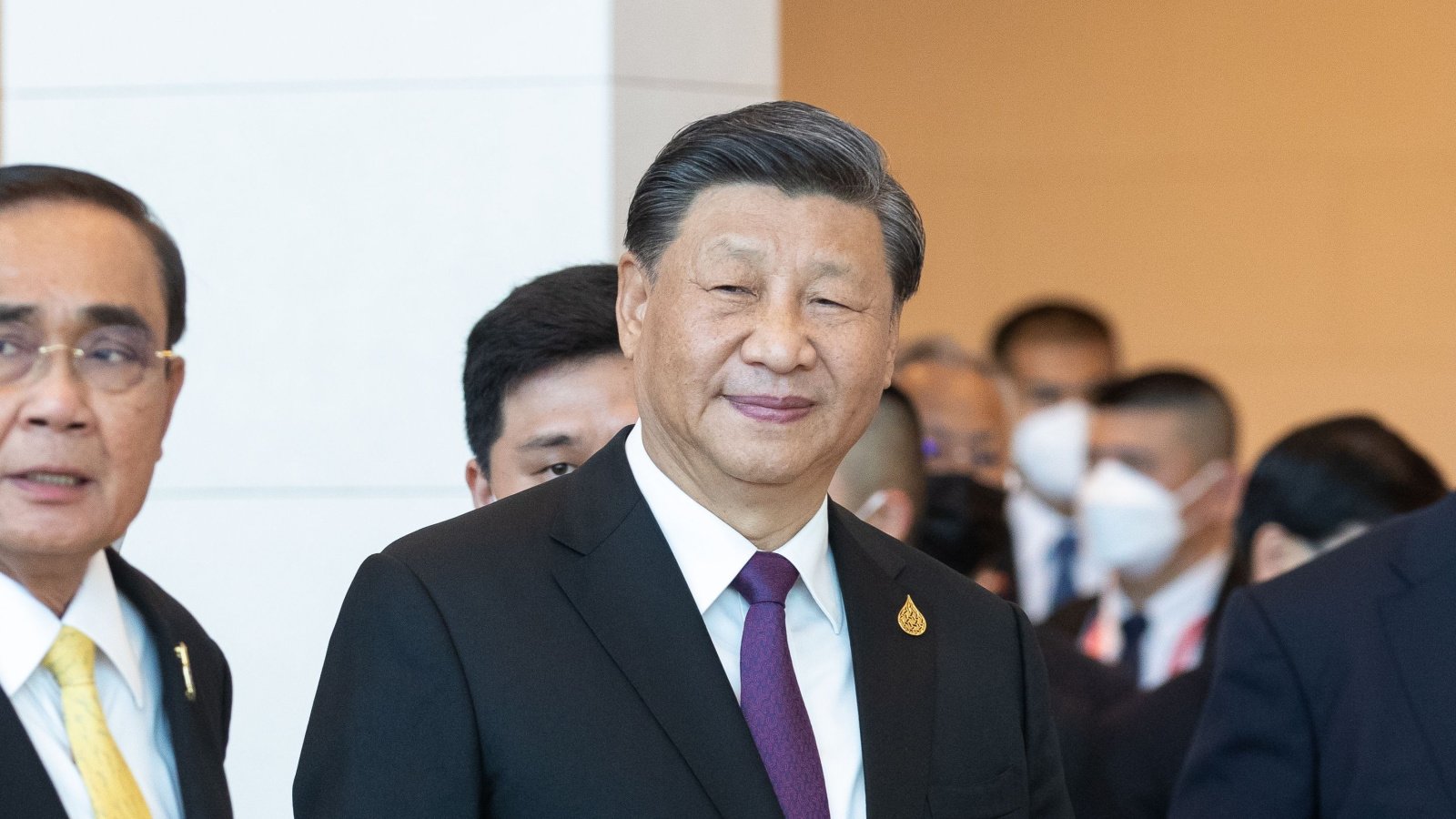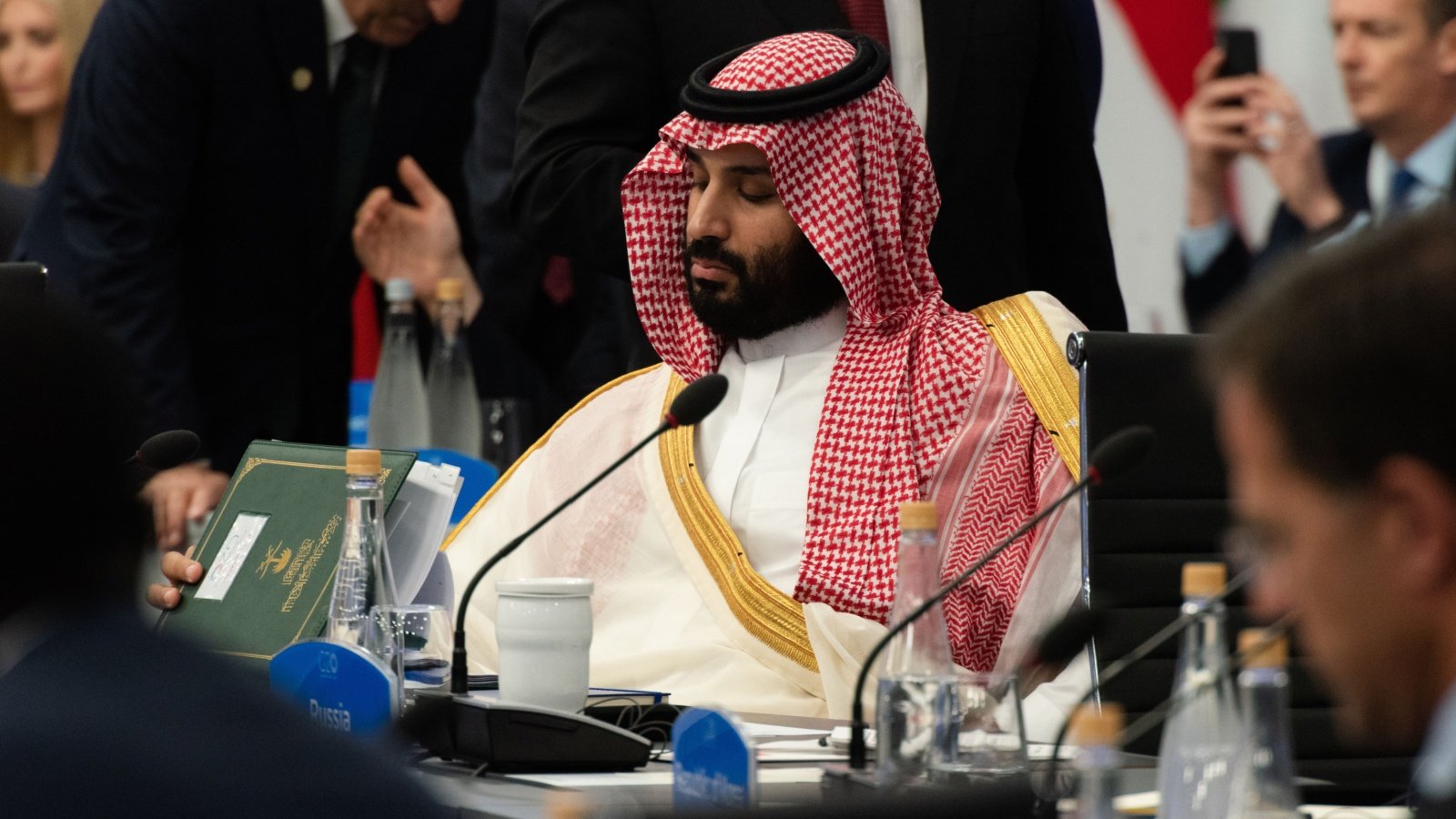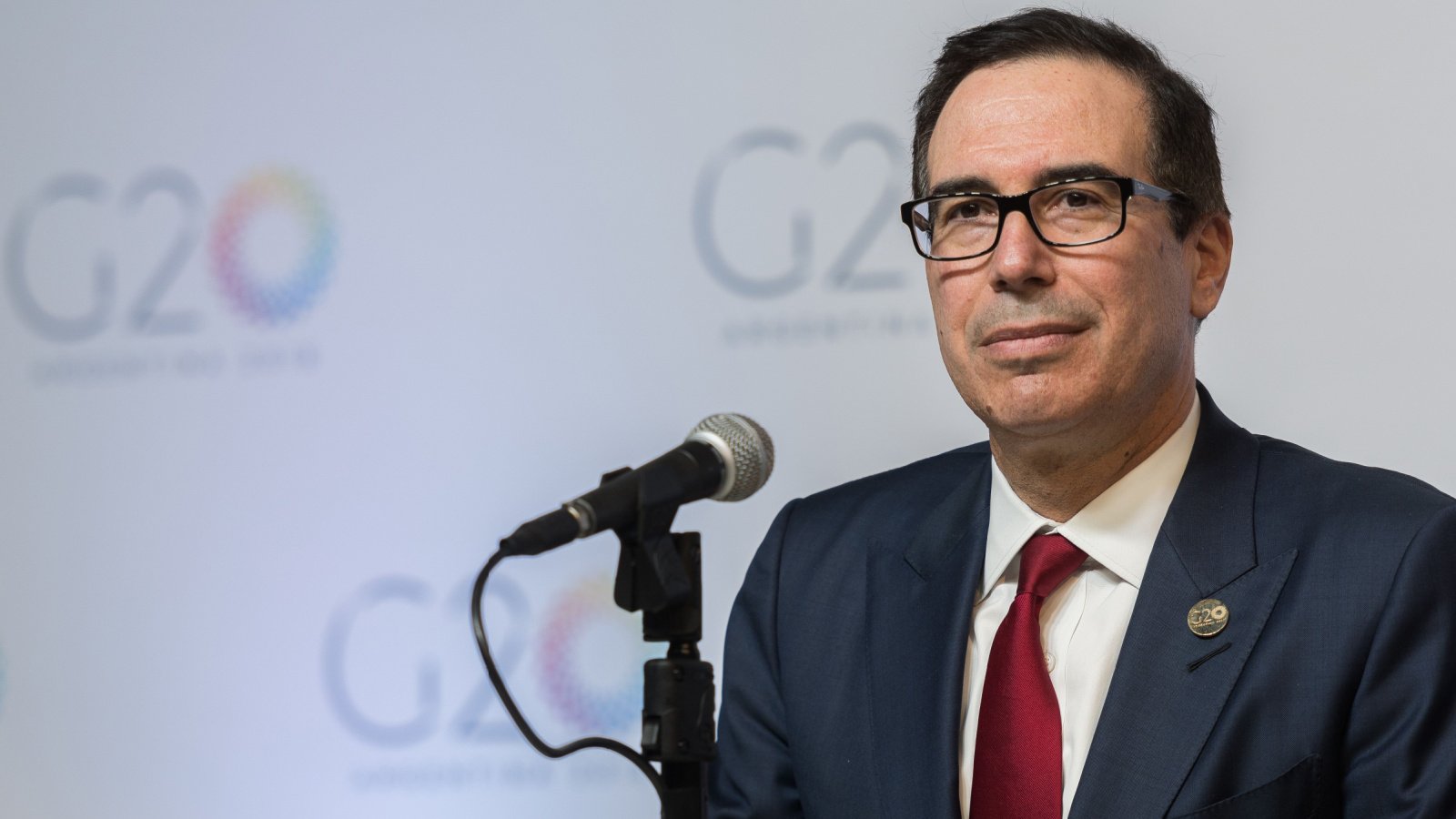Saudi Arabia is embarking on an ambitious journey to redefine its economic landscape, moving beyond its rich oil reserves to tap into over $2.5 trillion worth of untapped minerals the nation claims to have lying within its soil. This initiative marks a significant pivot towards diversifying its economy and reducing oil dependency. Watchdogs in the West remain concerned about the human rights implications of the new Saudi endeavor.
The Drive Towards Economic Diversification

Under the leadership of Khalid al-Mudaifer, the Deputy Minister for Mining, Saudi Arabia aims to transform its economy into a robust industrial powerhouse. Central to this transformation is the strategic emphasis on mining as a critical economic pillar, alongside the traditional oil, gas, and petrochemical sectors.
Saudi Arabia’s Vision 2030

The mining initiative is a key component of Saudi Arabia’s “Vision 2030,” a comprehensive plan designed to diversify the economy. The goal is to establish mining as a foundational industry, which, in turn, would attract investments from other mineral-dependent sectors, including the burgeoning electric vehicle and battery manufacturing industries.
A Strategy for Global Dominance

Al-Mudaifer detailed Saudi Arabia’s multifaceted approach to mining, focusing on domestic resource extraction, international mineral acquisition, and becoming a global hub for mineral processing and refinement. This strategy not only aims to bolster the national economy but also to develop remote areas. Saudi Arabia attributes its potential $2.5 trillion in mineral wealth to the country’s significant phosphate and rare earth resources.
International Ventures for Resource Security

Understanding the limitations of its domestic resources in fulfilling its industrial ambitions, Saudi Arabia is actively seeking to secure minerals on a global scale. The establishment of the Manara Minerals fund exemplifies the Saudi’s strategic efforts to enhance its access to crucial minerals worldwide.
Navigating Global Challenges

Saudi Arabia’s mining ambitions place it in direct competition with global powers, notably China. However, al-Mudaifer remains optimistic, viewing the Saudi strategy as complementary to global efforts towards a successful energy transition rather than as a rivalry.
China and Saudi Arabia Share History of Human Rights Abuses

Saudi Arabia shares with China another significant factor in mining production: a history of human rights violations and concerns from Western watchdog organizations. Saudi Arabia’s history with human rights has been complex and contentious, marked by instances that have drawn international criticism and concern. This backdrop is crucial when considering the expansion into mining, a sector also fraught with human rights challenges.
Riyadh’s Human Rights Record

Saudi Arabia’s human rights record has been under scrutiny for various reasons, including freedom of expression, assembly, and the press. The kingdom has faced criticism for its treatment of political dissidents, human rights activists, and women, despite recent reforms such as allowing women to drive. The use of capital punishment, including public executions, and the guardianship system, which has been partially dismantled, have also been points of contention. Additionally, the involvement in the Yemen conflict has raised questions about human rights abuses.
Labor Rights

The kingdom’s labor market, heavily reliant on foreign workers, has faced criticism over conditions for migrant workers, who often face exploitation, poor living conditions, and limited legal protections. Although some reforms have been made, challenges persist.
Mining and Human Rights Pitfalls

Mining, a sector Riyadh is eagerly expanding into, presents its own set of human rights challenges. These include harsh and dangerous labor conditions, adverse environmental impact, potential disruption of indigenous rights, forced displacement, and lack of transparency and accountability.
Moving Forward

As Riyadh embarks on expanding its mining sector, it faces the challenge of navigating these human rights concerns responsibly. Implementing stringent labor protections, ensuring environmental sustainability, respecting indigenous rights, and fostering transparency and community engagement are essential steps to mitigate the human rights pitfalls associated with mining. This approach will not only help safeguard human rights but also enhance the sustainability and ethical standing of Saudi Arabia’s mining ambitions.
Addressing the Talent and Water Challenge

The ambitious mining plan also faces practical challenges, including the need for specialized talent and the scarcity of water, essential for mining operations. Saudi Arabia plans to import expertise and adopt sustainable practices, like utilizing graywater, to mitigate these issues.
The Economic Impact of Mining

As Saudi Arabia advances its mining strategy, the potential economic benefits are vast. By leveraging its untapped mineral resources and establishing itself as a hub for mineral processing and refinement, Saudi Arabia can significantly enhance its economic stability and global influence.
Looking Ahead

Saudi Arabia’s bold steps towards mining dominance underscore its commitment to economic diversification and sustainable development. As the kingdom navigates the complexities of the global mining industry, its success could provide a blueprint for other nations seeking to leverage their mineral wealth in the transition towards a cleaner, more sustainable future.









Geben Sie die erforderlichen Angaben wie Ihren Namen, Ihre E-Mail-Adresse, Ihr Geburtsdatum und alle weiteren erforderlichen Informationen ein. Navigieren Sie zur Zielseite und
suchen Sie die Schaltfläche „Anmelden“ oder „Registrieren“.
Nachdem Sie sich für eine Marke entschieden haben, ist der nächste Schritt, vollwertiges Mitglied
zu werden. Sie können die Suche verkürzen, indem Sie eine Marke aus unserer Liste empfohlener Betreiber auswählen.
Der erste Schritt besteht darin, einen Betreiber
auszuwählen, der Ihren Präferenzen am besten entspricht.
Der gesamte Prozess ist intuitiv und wird auf fast jeder Casino-Website gespiegelt.
Mit dieser Zahlungsmethode können wir unser Geld von dem Konto, das wir bei unserer Bank haben, auf das Konto
überweisen, das wir auf der niederländischen Wettseite haben. Grundsätzlich bietet jede Wettseite in den Niederlanden Kreditkarten als Zahlungsmittel auf ihren Websites an. Wenn wir denken,
dass wir Hilfe brauchen, um unsere ungesunde Beziehung zu Online-Casino-Wetten zu lösen, können wir sie besuchen agog.nl.
Für Glücksspiele müssen wir einen Steuersatz von 29 % für
das Geld zahlen, das wir erworben haben, als wir Wetten auf Casinospiele auf den niederländischen Glücksspiel-Websites platziert haben.
References:
https://online-spielhallen.de/gizbo-casino-auszahlung-alles-was-sie-wissen-mussen/
The speed ratings for hard disk drives is not directly comparable with that for solid state drives
because SSDs as a category are much faster. Star ratings
are awarded separately for hard disk drives and solid state drives.
Read speed is a measure of how quickly stored files can be
accessed on the drive.
Need to know 1TB size tested, preformatted to NTFS, weight 120g (1TB model), dimensions (L x
W x H) 10.9 x 7.8 x 1.4cm, two-year warranty Need to know 1TB size tested, preformatted to NTFS, weight 130g (1TB model),
dimensions (L x W x H) 11.7 x 8 x 1.5cm, two-year
warranty Need to know 1TB size tested, preformatted to exFAT, weight 123g (1TB model), dimensions (L x W x H) 11.4 x 8 x 1.2cm,
two-year warranty
Crown Melbourne is committed to providing a safe, secure, and responsible gaming environment — both onsite and
online. Use your Crown Rewards card or account across Crown Melbourne and Crown Online Casino to collect points and redeem exclusive offers.
Whether you’re a tourist or a local, Crown Melbourne is a
must-visit landmark for gaming and leisure. Visitors also enjoy live performances, movie theatres, shopping, and spa services — all under one roof, making Crown Melbourne a complete entertainment
resort. Crown’s “Play Safe” initiative ensures
that gaming remains an enjoyable experience while promoting awareness and help-seeking behaviour among guests.
Visitors have access to support services, including multilingual counselors, time-limit tools, and a voluntary self-exclusion program.
References:
https://blackcoin.co/45_exclusive-new-jersey-online-poker-vip-programs-compared_rewrite_1/
Videos that you’ve uploaded, which include public, private and unlisted videos, can be found under ‘Your videos’.
History shows you a list of the videos that you’ve previously
watched on YouTube. The search bar helps you to find the videos
that you want to watch on YouTube. Once you sign in and start
watching videos, the home page will show you recommended
videos based on your preferences and activity on YouTube.
If you’re new to YouTube or haven’t signed in yet, the home
page will show you the most popular videos on YouTube.
The platform’s VIP Program rewards regular players with larger daily bonuses, exclusive in-game offers,
and access to special events. The platform’s straightforward login process ensures you can quickly access your favorite games and
claim daily bonuses that keep the virtual
coins flowing. The platform offers a comprehensive virtual economy where players earn coins through gameplay, daily bonuses, and special promotions.
The combination of daily bonuses, VIP progression, and social features makes maintaining an active account worthwhile for anyone interested in free-to-play casino
entertainment. The combination of quality games, generous
rewards, and community features creates an engaging experience that rivals traditional casino gaming while remaining completely risk-free.
References:
https://blackcoin.co/stay-casino-australia-review-and-bonuses-2025/
gamble online with paypal
References:
https://gizemarket.com
online casino with paypal
References:
woodwell.co.kr
online real casino paypal
References:
https://dcts.co.kr/dcts/bbs/board.php?bo_table=free&wr_id=413387
online casino paypal einzahlung
References:
https://stayzada.com/bbs/board.php?bo_table=free&wr_id=551079
Awesome post! Join the fun at https://www.web-lzd-whatsweb.com 借助 WhatsApp 网页版,安全性与便捷性相结合,提升用户体验。 . Date: 2026-01-14 18:37:16 (-03).